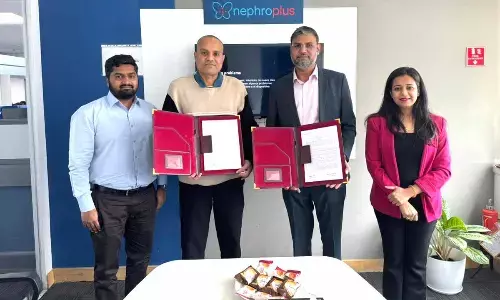Thrust on micro irrigation to help farmers face drought

Despite its potentiality to combat the drought challenges, the micro irrigation scheme has never got its due either from the government or from the farmers as the latter continued to stick to conventional methods of farming. Knowing that it could change the face of agriculture in the State, the government has finally taken up aggressively the proposal to encourage the drip irrigation and thereby promoting the productivity.
Khammam: Despite its potentiality to combat the drought challenges, the micro irrigation scheme has never got its due either from the government or from the farmers as the latter continued to stick to conventional methods of farming. Knowing that it could change the face of agriculture in the State, the government has finally taken up aggressively the proposal to encourage the drip irrigation and thereby promoting the productivity.
The doubling of funds and the accountability in the implementation of the scheme would help the farmers in combating the deficit rainfall and depletion of water table. The major development among the changes brought in by the government was accountability of the companies that supply kits to farmers. The companies, who supply the kits, would have to maintain them for 10 years.
It may be mentioned here that farmers have to bear the brunt of crop loss as the kits never lasted a year. Now, the companies that supply the kits will have to take care of them by setting up servicing centres in all Assembly constituencies. According to latest guidelines, the applicability of the subsidy under the scheme has been increased to 5 hectares from the existing 2 hectares. While the scheduled castes get a subsidy of 100 per cent on drip irrigation kits, the BCs and others will get 90 and 80 per cent, respectively.
The cost-effective and water-efficient micro irrigation method has proved beneficial and helped farmers reap rich harvest in the upland mandal of Tirumalayapalem in Khammam district last year. The crops covered under the micro irrigation are cotton, chilli, maize and all horticultural crops.
“As over 60 per cent of water can be saved using drip and sprinkler irrigation systems, the farmers can fight the drought to a large extent,” the Horticulture Wing Assistant Director, Khammam, Suryanarayana told The Hans India, who also pointed out the importance of practicing 'Mulching' technique in upland areas.
















